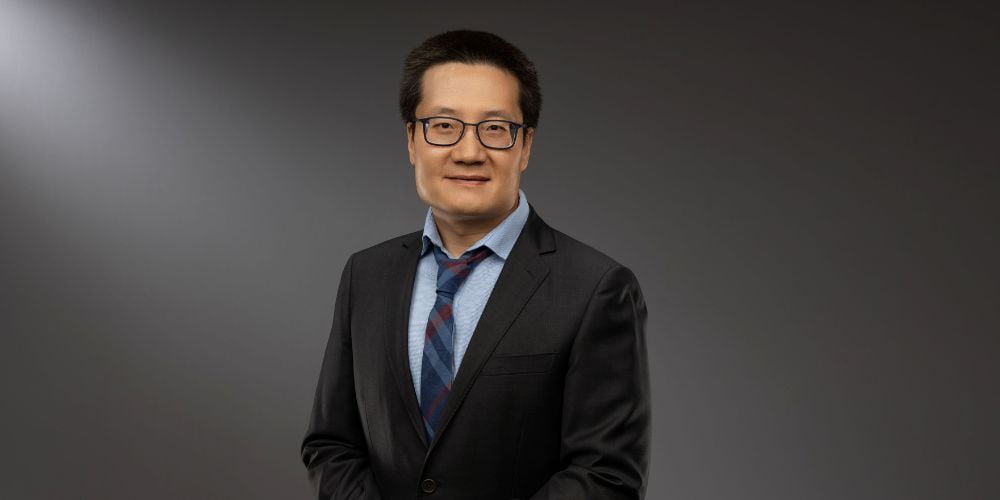UTA engineer aims to design high-performance memristors

A University of Texas at Arlington faculty member is working to make computer processing of large amounts of data faster and more efficient through the use of devices called memristors.
Ye Cao, an assistant professor in the Materials Science and Engineering (MAE) Department, has earned a five-year, $500,294 Faculty Early Career Award Development Program (CAREER) grant from the National Science Foundation (NSF) to advance his research and education initiatives. The CAREER Award is the NSF’s highest honor for junior faculty. Winners are outstanding researchers, but also are expected to be outstanding teachers through research, educational excellence and the integration of education and research at their home institutions.
“I am happy to earn a CAREER Award,” Cao said. “The knowledge we gain from this research will provide guidance to the experimental synthesis and characterization of novel memristors for faster, more efficient computing.”
Many applications, such as deep learning, use lots of data and require computers that can process all of it. In most computers based on the von Neumann architecture, data is calculated in the central processing unit (CPU), then stored in the memory. The frequent data transferring between memory and CPU causes high energy consumption and low computing efficiency.
One solution to that is the so-called in-memory computing, in which computing and memory occur in the same unit. This is made possible by memristors, a type of material device that can be programmed to change its electrical resistance states in response to computing needs. Memristors can be in different states and maintain a state until a new energy input happens.
Cao’s research seeks to better understand and design a high-performance memristor that will enable faster, more energy-efficient computing, especially in data-centric applications such as machine learning and neuromorphic computing. Cao will try to identify new materials and structures for use in memristors that will allow researchers to gradually change the resistance states rather than doing so abruptly.
“While memristors are not new, Dr. Cao’s research could make them a much better option for those working with machine learning in many applications. If he is able to identify new materials that will enable memristors to be more functional, with more memory, this could open the door for many new ideas in supercomputing,” said Efstathios Meletis, chair of MAE.
Cao joined UTA in 2017. His research is in the field of multiscale simulations of materials, with a focus on mesoscale phase-field modeling and machine learning-aided materials discovery and design. His current topics include charge transport in oxide-based resistive random-access memories, interfacial stability in Li metal batteries, and ferroelectric domain structure and switching in multi-functional ferroelectric oxides.
He has authored or co-authored more than 50 publications in peer-reviewed journals, including Nature Materials, Nature Communications, and npj Computational Materials. His research projects have been sponsored by organizations such as the National Science Foundation and American Chemical Society for more than $1.3 million.
— Written by Jeremy Agor, College of Engineering